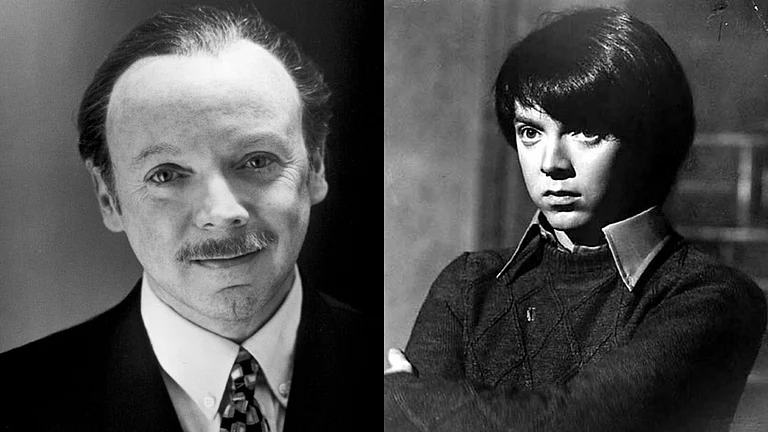A special National Investigation Agency Court (NIA Court) in Uttar Pradesh's Lucknow awarded death sentences to seven ISIS-linked terrorists in a 2017 terror case, said an official on Wednesday.
One associate of the seven was given life imprisonment, said the official, adding that the 2017 case pertains to various terror activities, including a bomb blast inside a train in Uttar Pradesh.
In a separate judgement, an NIA court in Gujarat awarded 10 years rigorous imprisonment to two brothers who were found involved in radicalising and recruiting people to carry out terror acts in the country in the name of global terror group ISIS, said the official.
The NIA termed the judgments as "another milestone" in its tradition of evidence-based investigation and said "both cases relate to the online radicalisation of the accused in the name of ISIS, their motivation to commit violent 'jihad' and cause terror attacks in the country".
The official said the conviction rate of NIA cases stands at 93.69 per cent with the pronouncing of the two sentences.
What's the 2017 UP case?
The seven ISIS-linked terrorists sentenced to death in Uttar Pradesh terror case are identified as Mohammad Faisal, Gauss Mohammad Khan, Mohammad Azhar, Atif Muzaffar, Mohammad Danish, Sayed Meer Hussain, and Asif Iqbal alias 'Rocky'.
Their associate Mohammad atif alias 'Atif Iraqi' was sentenced to life imprisonment, said an NIA spokesperson.
The official said the eight accused from Uttar Pradesh along with slain terrorist Mohammad Saifullah had set up a hideout in the Haji Colony area of Lucknow, and had prepared and tested some improvised explosive devices (IEDs). They had tried to plant them at various locations in Uttar Pradesh, the spokesperson said, adding that investigations have led to the discovery of several photographs of the accused making IEDs, with weapons and ammunition and the ISIS flag.
"The group had reportedly collected illegal weapons, and explosives from various places. Atif and three others - Danish, Hussain and Saifulla - had been responsible for fabricating the IED that was planted in the Bhopal-Ujjain passenger train that left 10 persons injured on March 7, 2017," the spokesperson said.
The NIA said the accused had come together to propagate the ISIS's ideology and promote its activities in India.
The spokesperson said, "In pursuit of this objective, Faisal, Khan, Muzaffar, Danish and Saifulla had explored land routes. They had visited several key cities across the country, including Kolkata, Sundarbans, Srinagar, Amritsar, Wagha Border, Badmer, Jaisalmer, Mumbai, and Kozhikode, for undertaking 'hijrah' (migration).
"Khan and Muzaffar had, in fact, explored a route to cross over to Bangladesh via Sundarbans, as per investigations. Faisal, Atif and Saifulla had also travelled to Kashmir in March 2016 in a bid to contact some terrorist groups that could help them to cross over to Pakistan, from where they could migrate to ISIS controlled territories in Syria."
Saifulla was killed in an encounter with police during a raid on the hideout in Haji Colony on March 7, 2017, the spokesperson said, adding that the case was initially registered on March 8, 2017, at the Anti Terrorist Squad (ATS) police station, Lucknow, and re-registered by the NIA six days later.
After investigations, a charge sheet was filed against the eight on August 31, 2017. Post the trial, the accused persons were convicted on February 24.
What's the Gujarat case?
In another case, the Gujarat NIA special court has sentenced two ISIS terrorists to 10 years rigorous imprisonment for their involvement in activities to radicalise and recruit people to carry out terror acts in India.
Both the accused, Vaseem Arif Ramodia alias 'Ninja Fox' and Naeem Arif Ramodia alias 'ND', are brothers and residents of Rajkot in Gujarat, the spokesperson said.
The official said investigations have revealed that they used online chats and messages to advocate and spread the ideology of the terror group.
"They arranged, participated and assisted in organising online discussions and meetings among active ISIS operatives to plan and execute acts of violence. They had tried to commit arson by burning vehicles and shops belonging to non-Muslims," the spokesperson said.
The NIA said they have unsuccessfully tried to make an IED as well.
"On the directions of their online ISIS handlers, both the accused were preparing to carry out a lone-wolf attack at Chotila Temple. They had already undertaken a reconnaissance of the area but were apprehended before they could carry out the attack," the official said.
The official said the case was initially registered at the ATS police station in Ahmedabad and re-registered by the NIA on May 25, 2017.
The chargesheet was filed against them on August 22, 2017, and after the trial was completed, the judgment convicting them was pronounced on Tuesday, the spokesperson said.
What is terrorist group ISIS?
The ISIS is a Sunni jihadist terrorist group that has its origins in the Iraq-Syria region.
While it's originally translated name is "The Islamic State of Iraq and al-Sham", it's in English translated as Islamic State of Iraq and Syria (ISIS) or Islamic State of Iraq and Lavent (ISIL), or just the Islamic State.
ISIS was formed in 2005 by Abu Musal al-Zarkawi, who was previously an Al-Qaeda leader in Iraq. He left Al-Qaeda to start ISIS.
"By 2005, Al-Qaeda in Iraq was a potent force...Seeking to grow, Zarqawi merged with the Mujahideen Shura Council (MSC), a network of other jihadi groups, and the newly founded army became the Islamic State in Iraq (ISIS) — the direct precursor to ISIS," notes journalist Benjamin Hall in his book Inside ISIS: The Brutal Rise Of A Terrorist Army.
The objective of the ISIS is to establish a global Islamic State called the Caliphate. At its peak, it ran a territorial Caliphate across Iraq and Syria and controlled about a third of Syria and 40 per cent of Iraq, according to Wilson Center.
Besides the now-collapsed Caliphate, the ISIS functions through regional affiliates or branches that swear fealty to ISIS central leadership.
The ISIS also uses lone wolf attacks and remote controlled attacks where terrorists are remotely guided to carry out attacks.
(With PTI inputs)


























